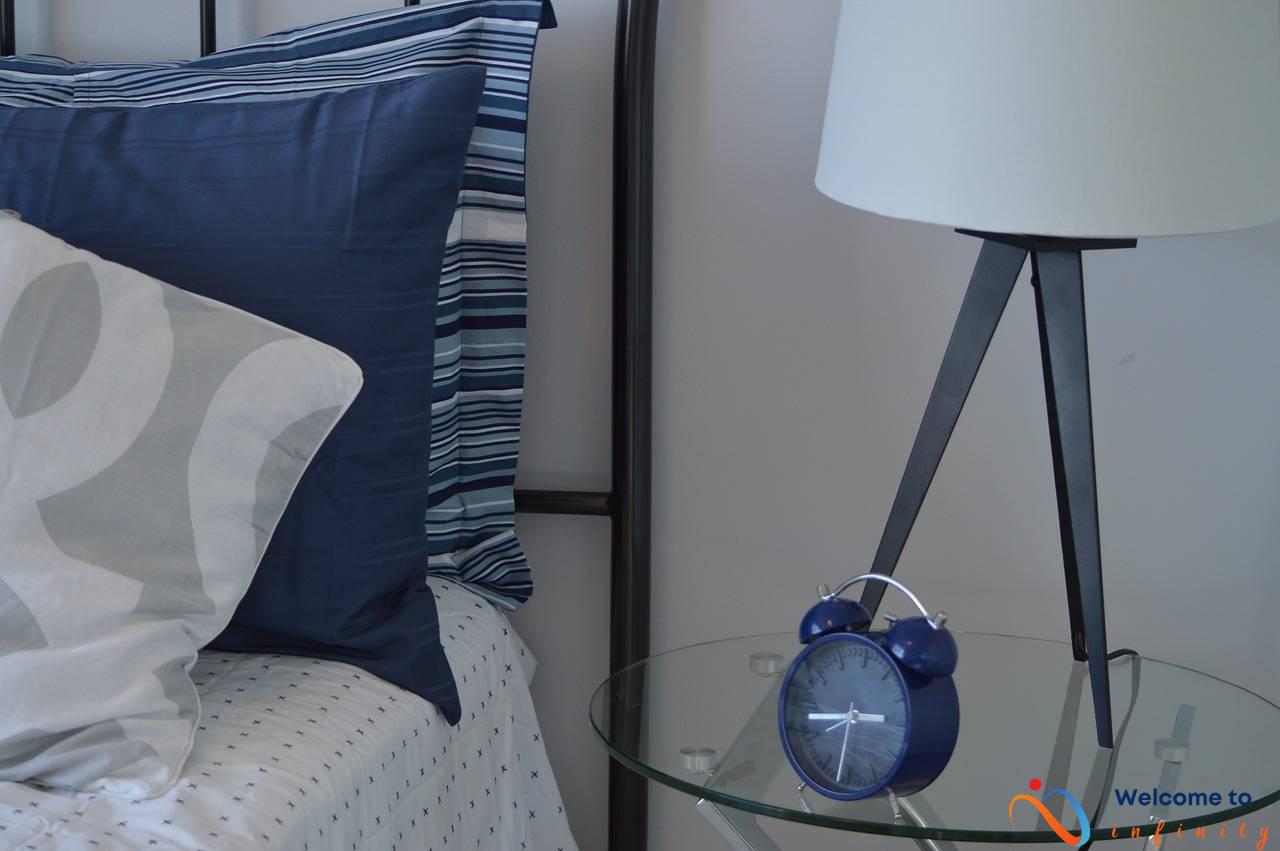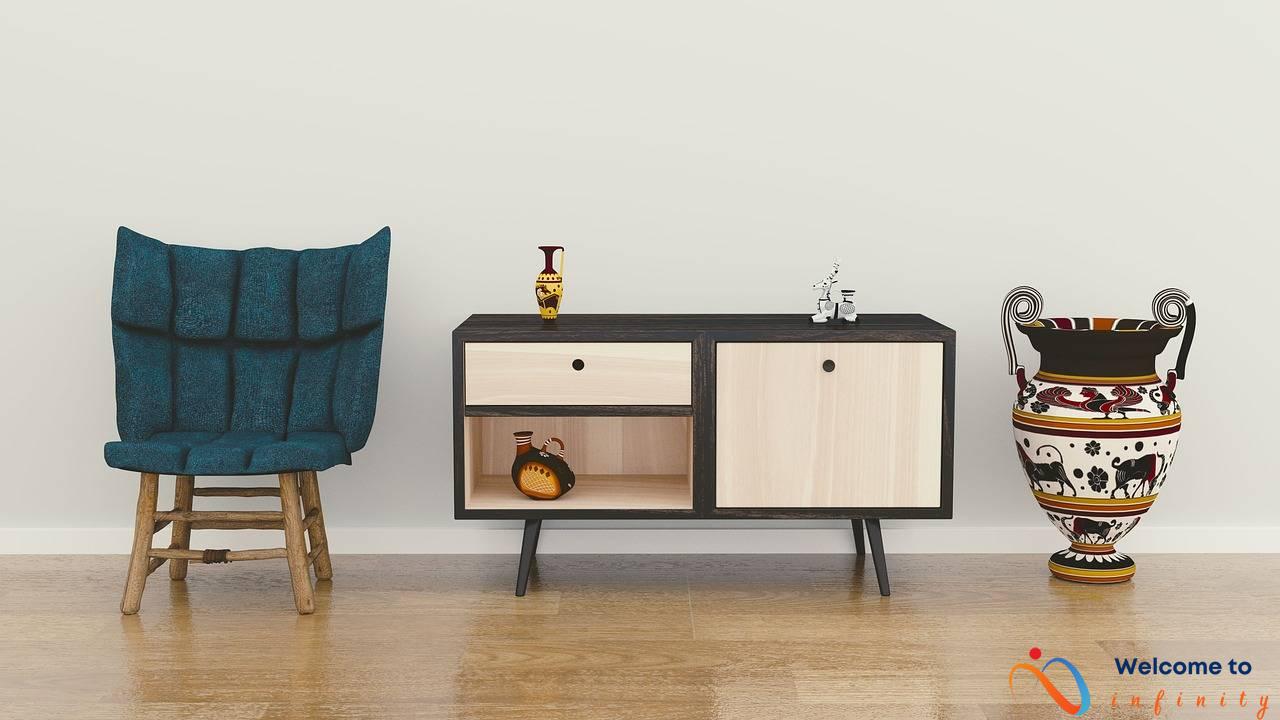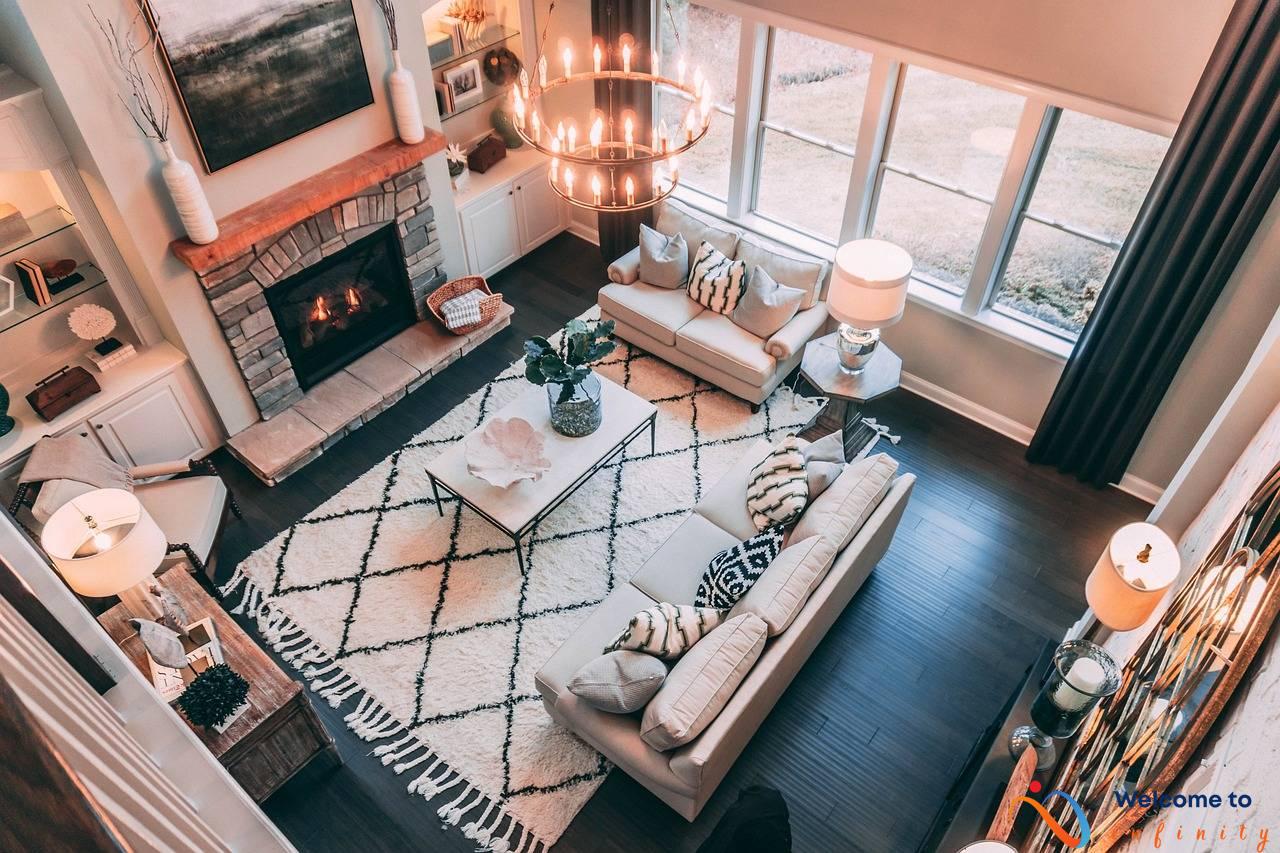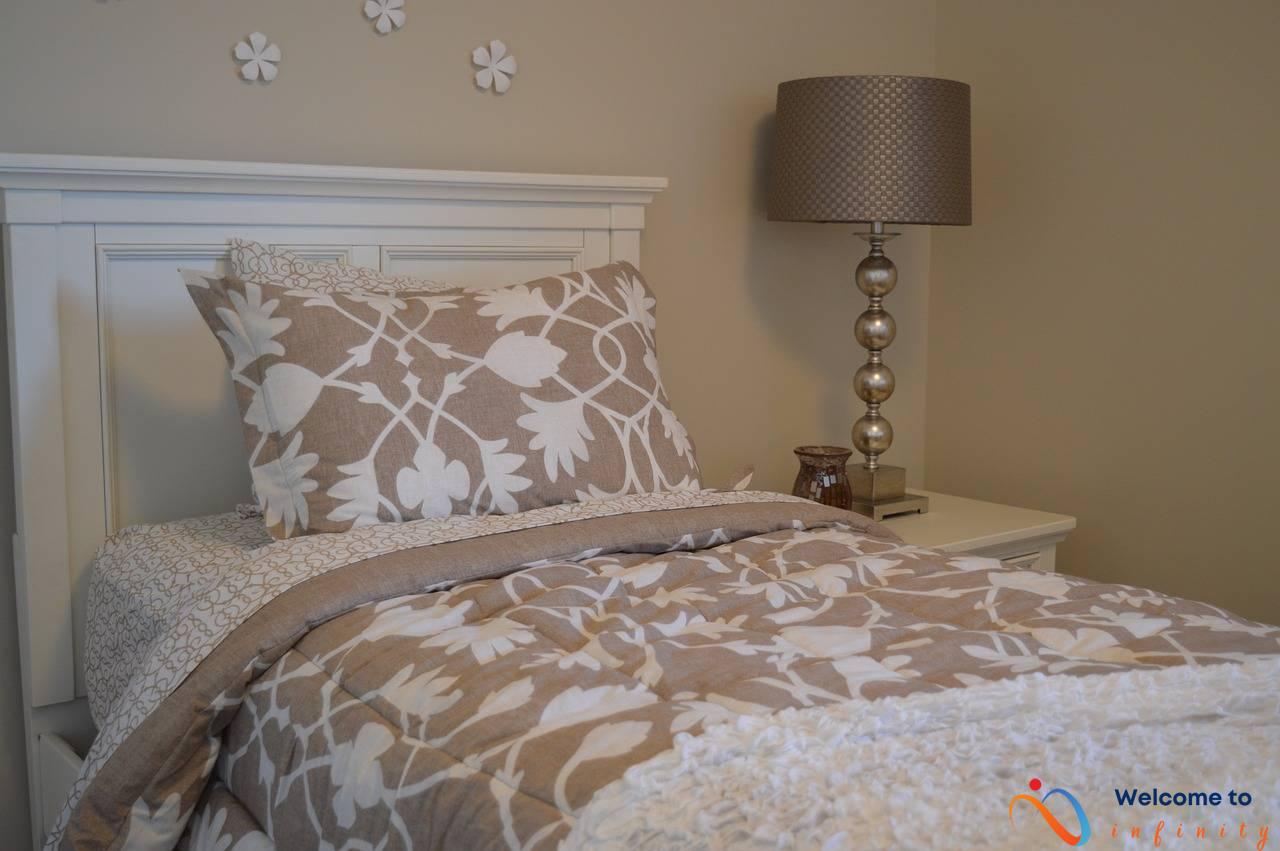If you're looking for a way to add some warmth and style to your dining table, consider taking inspiration from the inviting Mediterranean style. With its vibrant colors, natural elements, and delicious cuisine, the Mediterranean region is known for its relaxed and welcoming atmosphere. Whether you're hosting a dinner party or simply enjoying a meal with family, these creative ideas will help you create the perfect Mediterranean-inspired table setting.
To start, use bright and bold colors like cobalt blue, sunny yellow, and turquoise for your tablecloths, napkins, and serving dishes. This will help create a vibrant and lively atmosphere that is common in Mediterranean homes. To complement these colors, mix in some natural elements like wood and stone to create a rustic look. You can also add greenery to your table setting through potted plants or fresh herbs, which will not only add some added beauty but also natural fragrances that will enhance the dining experience.
For a more natural and understated look, choose earthy tones like terracotta, olive green, and sandy beige for your tableware and linens. You can also incorporate Mediterranean patterns, which often feature intricate designs and geometric shapes, on your tablecloths and runners. These elements will add some subtle Mediterranean flair while still maintaining a relaxed and natural ambiance.
- Use bold and bright colors like cobalt blue, sunny yellow, and turquoise
- Incorporate natural elements like wood and stone
- Choose earthy tones like terracotta, olive green and sandy beige
- Incorporate Mediterranean patterns featuring intricate designs and geometric shapes
For a beautiful centerpiece, you can use fresh herbs, colorful fruits, and fragrant flowers in rustic vases or bowls. This will help bring some color and life to your table setting while also adding a touch of natural beauty. If you want to add some coastal vibes to your Mediterranean table setting, incorporate seashells, driftwood, and other nautical accents that suit the region perfectly.
No Mediterranean table setting can be deemed complete without some traditional Mediterranean dishes. Serve up some hummus, tabbouleh, grilled meats, and fresh seafood to complete the dining experience. Encourage communal dining by serving dishes family-style, with large platters and bowls that everyone can share. This will not just add some energy to the meal but will also give guests a chance to try new dishes and help themselves to seconds.
Offer refreshing drinks like wine, sangria, lemonade, or iced tea to complement the flavors of the Mediterranean cuisine, and allow everyone to enjoy a cool drink on a warm Mediterranean evening. By taking inspiration from the warm and inviting Mediterranean style, you can create the perfect table setting that not only looks stunning but also offers a dining experience that is unforgettably unique.
- Serve traditional Mediterranean dishes like hummus, tabbouleh, grilled meats, and fresh seafood
- Encourage communal dining by serving dishes family-style
- Offer refreshing drinks like wine, sangria, lemonade, or iced tea
Bold Colors
If you want to create a vibrant and inviting Mediterranean table setting, bold colors are a must-have. Use tablecloths, napkins, and serving dishes in bright and bold shades like cobalt blue, turquoise, and sunny yellow to liven up the table. These colors also reflect the shades of the Mediterranean sea, adding a touch of the sea to your dining experience.
To create a cohesive look, you can opt for tableware and serving dishes in the same color family. You can also mix and match colors for a more eclectic look. However, make sure to balance out the bold colors with neutral shades like white or beige to avoid an overwhelming look.
You can also use color coordination with the food you serve. For instance, dishes featuring roasted red peppers and tomatoes can be served in bright red or orange plates while green salads can be served on turquoise or blue plates.
If you want to add an extra layer of style to your table, you can use table runners or placemats in complementary shades of the dominant color. And to add some pattern to the look without sacrificing the bold color scheme, opt for patterned napkins or tablecloths with geometric shapes and intricate designs.
Natural Elements
If you want to create a Mediterranean atmosphere on your dining table, incorporating natural elements is a must. The use of natural elements like wood, stone, and greenery can add a rustic and relaxed ambiance to your table setting.
using wooden plates, bowls, and utensils can bring a warm and natural touch to your table. Stone coasters or placemats can add a touch of elegance and sophistication. You can even use wooden or stone candle holders to add a soft, warm glow to the ambiance.
Incorporating greenery into your table setting can add a pop of freshness and color. You can use fresh herbs like rosemary or thyme as a garnish for your dishes or as a decorative touch on the table. Succulents or potted plants can also be used to add a natural element to the decor.
To create a cohesive and harmonious look, you can use earthy tones like terracotta or olive green for your tableware and linens and complement them with natural elements like wood and stone. This will not only make your table setting visually appealing but will also give off a relaxed and down-to-earth vibe.
Overall, incorporating natural elements into your Mediterranean table setting can take your dining experience to the next level by creating a warm and inviting atmosphere. Whether it's wood, stone, or greenery, adding natural elements is a simple and effective way to achieve the perfect Mediterranean ambiance.
Earthy Tones
The Mediterranean style is all about incorporating natural elements to create a rustic, relaxed ambiance. One way to do this is by using earthy tones in your tableware and linens. Terracotta, olive green, sandy beige, and other muted tones can create a more natural and understated look that still evokes the warm and inviting feel of the Mediterranean.
Consider using terracotta plates and bowls for a touch of rustic charm, or olive green napkins to add a pop of color to your table setting. You can also mix and match different shades of earthy tones to create a more eclectic look.
In addition to using earthy tones in your tableware and linens, you can also incorporate natural textures like linen, burlap, or woven rattan for a more authentic Mediterranean feel. These materials not only look great but also add a tactile element to your table setting.
- Use terracotta, olive green, and sandy beige for a natural look
- Consider mixing and matching different shades of earthy tones
- Incorporate natural textures like linen, burlap, or woven rattan for a more authentic feel
Overall, earthy tones are a great way to create a more natural and relaxed table setting that embodies the spirit of the Mediterranean.
Mediterranean Patterns
If you want to add a touch of artistry to your Mediterranean table setting, consider incorporating patterned tablecloths and runners with intricate designs and geometric shapes. These vibrant and eye-catching patterns are a hallmark of Mediterranean style and can breathe life into your table decor.
For a traditional Mediterranean look, choose table linens in warm colors like terra cotta, burnt orange, and muted reds. Opt for designs featuring bold floral motifs, swirling patterns, or bold geometric shapes. You can also mix patterns by pairing a patterned tablecloth with a solid-colored table runner or vice versa.
When it comes to plates and serving dishes, choose options with a similar color scheme or pattern to your table linens to create a cohesive look. If you have a variety of patterns on your table, balance them out with simple, sleek dinnerware.
To add an extra touch of elegance, create a table setting that complements your patterned tablecloths and runners with metallic accents. For example, use gold or silver cutlery, brass candlestick holders, or gold-rimmed glassware.
Ultimately, the best way to incorporate Mediterranean patterns is by letting your personal style shine through. Experiment with different color schemes and patterns until you find the perfect balance that captures the essence of Mediterranean style.
Botanical Centerpieces
Nothing sets the mood for a Mediterranean feast quite like a beautiful centerpiece. Botanical centerpieces, in particular, are a great way to bring a natural and fresh touch to your table setting. The key to creating a stunning botanical centerpiece is to choose a variety of fresh herbs, fruits, and flowers that complement each other.
You can start by selecting a rustic vase or bowl that goes well with your table setting. Fill the vase with water and add in some fragrant herbs like mint, rosemary, and thyme. These herbs will not only look gorgeous but will also create a pleasant aroma at your table.
Next, add colorful fruits like lemons, oranges, and pomegranates around the herbs. These fruits not only add a pop of color to your centerpiece but also make for a healthy and refreshing dessert option.
Finally, add in some fragrant flowers like lavender, roses, or sunflowers. These flowers will add a touch of elegance and beauty to your centerpiece, tying everything together.
Don't be afraid to get creative with your botanical centerpiece. You can mix and match different colors, textures, and shapes to create a unique and artistic arrangement. Additionally, you can place the botanical centerpiece on a rustic wooden board or tray to enhance the natural and relaxed feel of your Mediterranean table setting.
With these simple steps, you can create a beautiful botanical centerpiece that will impress your guests and make your Mediterranean dinner party truly unforgettable.
Coastal Vibes
One of the key elements of Mediterranean style is the coastal feel that it brings to the table. Incorporating coastal accents like seashells, driftwood, and nautical items can help you create a warm and inviting ambiance that is reminiscent of the seaside. To add a coastal vibe to your Mediterranean table setting, consider using seashells as decorative accents on your plates or napkin rings. You can also use driftwood as a base for your centerpiece or as a table runner.
In addition to seashells and driftwood, you can also incorporate nautical-themed items like rope or anchor accents. Use striped napkins or tablecloths to create a beachy feel, or incorporate navy blue and white into your decor to create a classic nautical look.
If you're hosting a dinner party on a seaside patio or near the beach, consider adding lanterns or string lights to your table setting to create a cozy ambiance as the sun sets. With a little creativity, you can easily bring the coastal vibes to your Mediterranean table setting for a memorable dining experience.
Mediterranean Cuisine
If you want to transport your guests to the Mediterranean, serving traditional Mediterranean cuisine is a must. Mediterranean cuisine is based on fresh, healthy ingredients, and bold flavors that elevate the dining experience to a new level.
Some of the most popular Mediterranean dishes include hummus, a creamy dip made with chickpeas, tahini, and olive oil; tabbouleh, a salad made with parsley, mint, tomatoes, and onions, seasoned with olive oil and lemon juice; grilled meats, like lamb chops, chicken skewers, or beef kebabs; and fresh seafood, like grilled or baked fish, shrimp, or calamari, seasoned with herbs and spices.
One of the things that make Mediterranean cuisine special is the use of fresh herbs and spices to enhance the natural flavors of the ingredients. Some of the most commonly used herbs and spices in Mediterranean cooking include oregano, basil, thyme, rosemary, garlic, and cumin.
To create an authentic dining experience, consider serving the dishes family-style, with large platters and bowls that everyone can share. This encourages a communal dining experience and allows your guests to sample a variety of flavors and dishes.
Don't forget to complement your Mediterranean cuisine with refreshing beverages like wine, sangria, lemonade, and iced tea, that highlight the flavors of the dishes and provide a perfect finish to the meal.
Shared Plates
Sharing food is an integral part of the Mediterranean dining experience, emphasizing community, connection, and conviviality. Instead of individual plates, serve dishes family-style, from large platters and bowls that everyone can share and pass around.
Not only does this promote a sense of togetherness, but it also encourages guests to try new dishes and flavors. Some popular shared plates in Mediterranean cuisine include mezze, a selection of small dishes like hummus, baba ganoush, and stuffed grape leaves, as well as grilled meats like lamb and chicken.
When setting the table for shared plates, make sure to include plenty of serving utensils like tongs and spoons, as well as additional small dishes for dips, dressings, and sauces. You can also use a large, communal breadbasket for everyone to tear off a piece of fresh bread to accompany their meal.
Shared plates also offer a practical advantage for larger gatherings since they minimize the need for individual plating, freeing up valuable table space while also simplifying meal prep and cleanup. So gather your loved ones around the table, pass the food, and share in the joy of a delicious Mediterranean feast.
Mediterranean Beverages
If you're looking to capture the true essence of Mediterranean dining, it's not just the food that's important. The drinks you offer can be just as essential in creating the perfect dining experience. Mediterranean cuisine is a perfect match for a wide range of refreshing beverages, and no Mediterranean meal is complete without a selection of drinks to go along with it.
One of the most popular beverages to serve with Mediterranean cuisine is a glass of wine. Whether you choose a red or white wine, be sure to select one that complements the flavors of your chosen dishes. Sangria is another refreshing option, made with red wine, fruit juices, and fresh chopped fruit. As a non-alcoholic alternative, lemonade and iced tea are both great options that pair well with Mediterranean flavors.
For something a little different, consider serving a traditional Mediterranean beverage like ouzo or Arak. These anise-flavored liquors are often served as an aperitif and are commonly enjoyed in Greece, Turkey, and the Middle East. Mint tea is also a common beverage in the Mediterranean, especially in Morocco, and is often served with a generous helping of sugar.
No matter what beverages you choose to serve with your Mediterranean meal, be sure to offer a variety of options that complement the flavors of your dishes. Whether you opt for wine, sangria, lemonade, or something a little more adventurous, the right choice of drink can enhance your dining experience and leave your guests feeling refreshed and satisfied.












